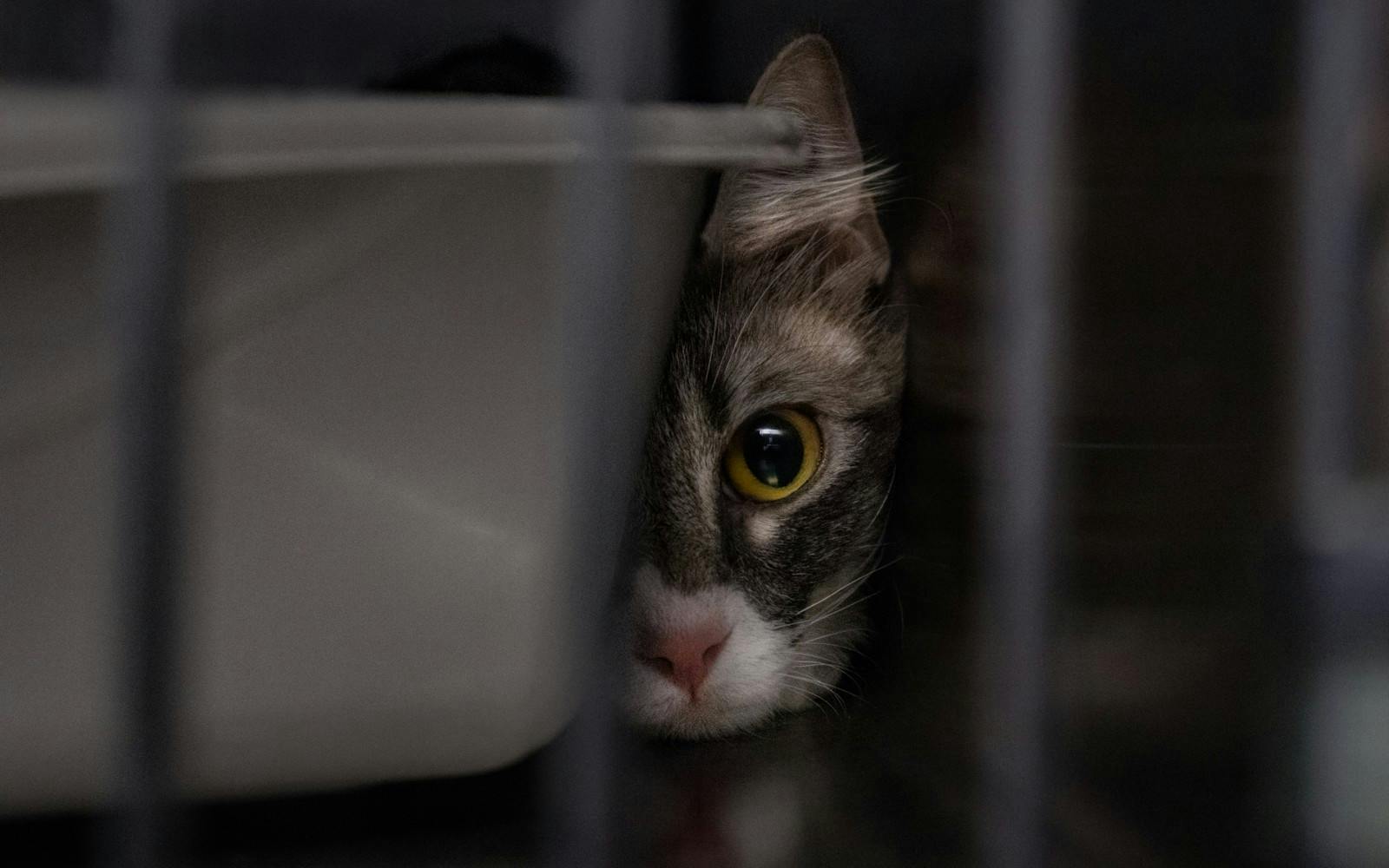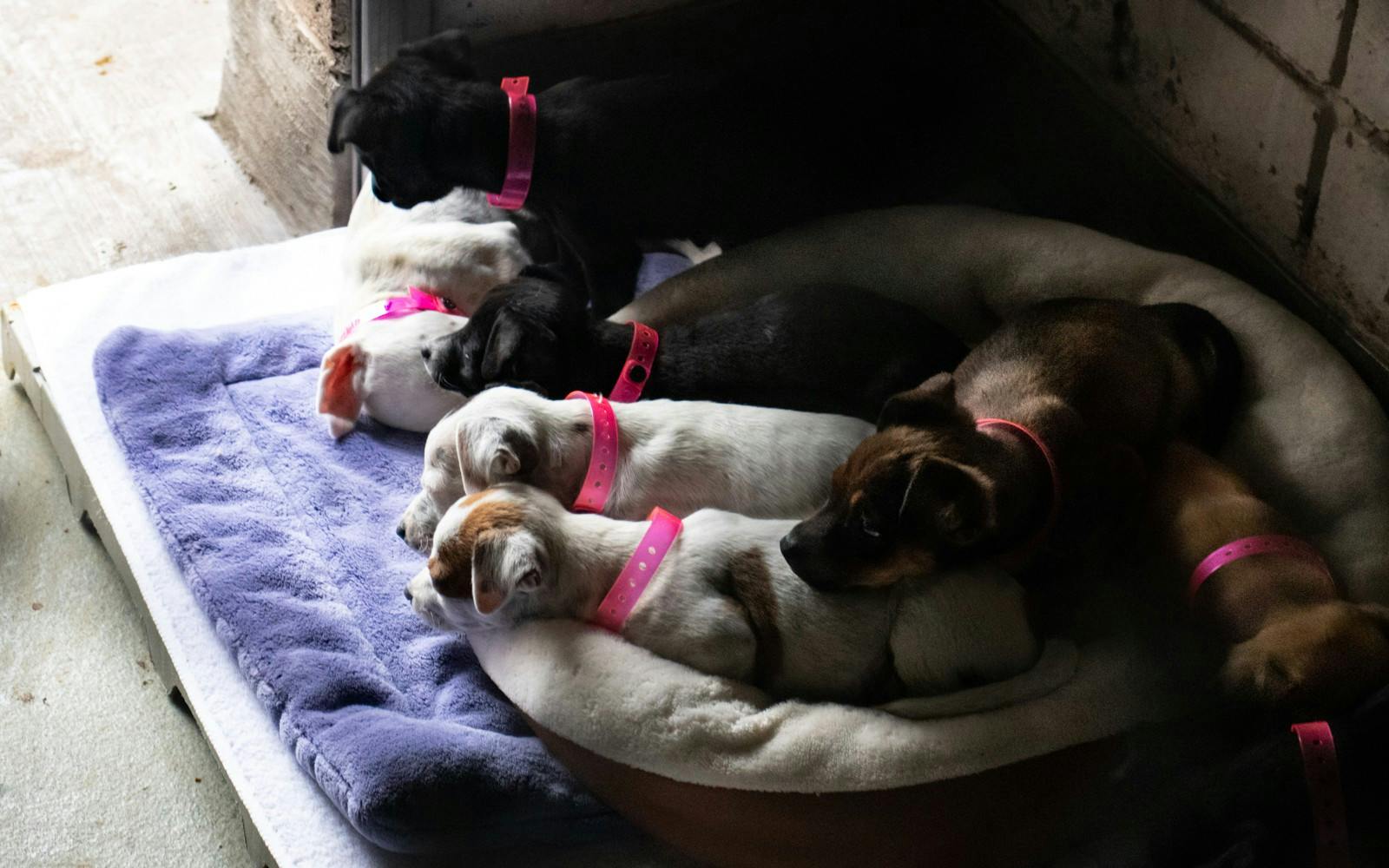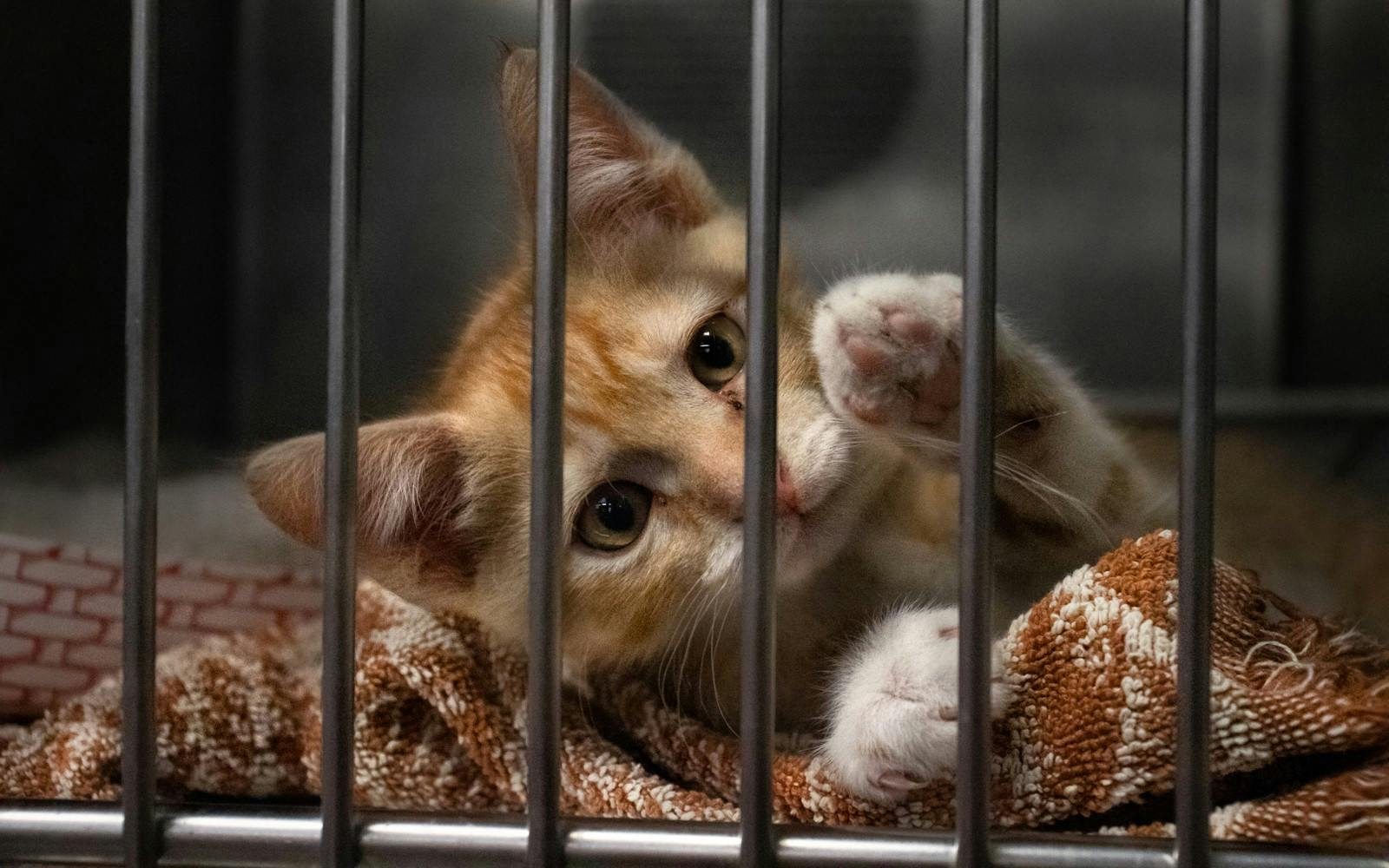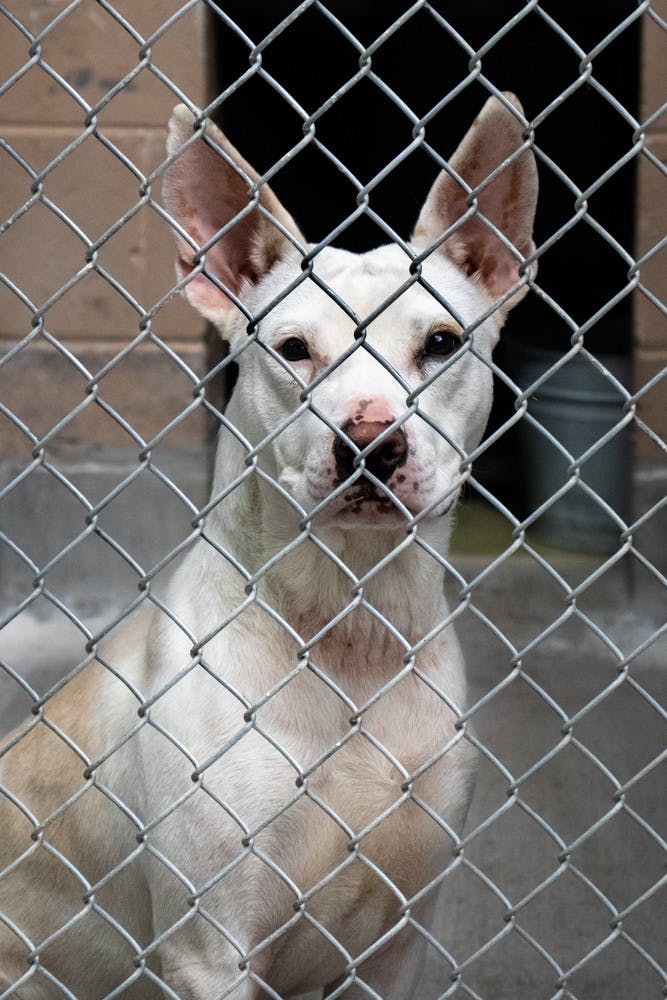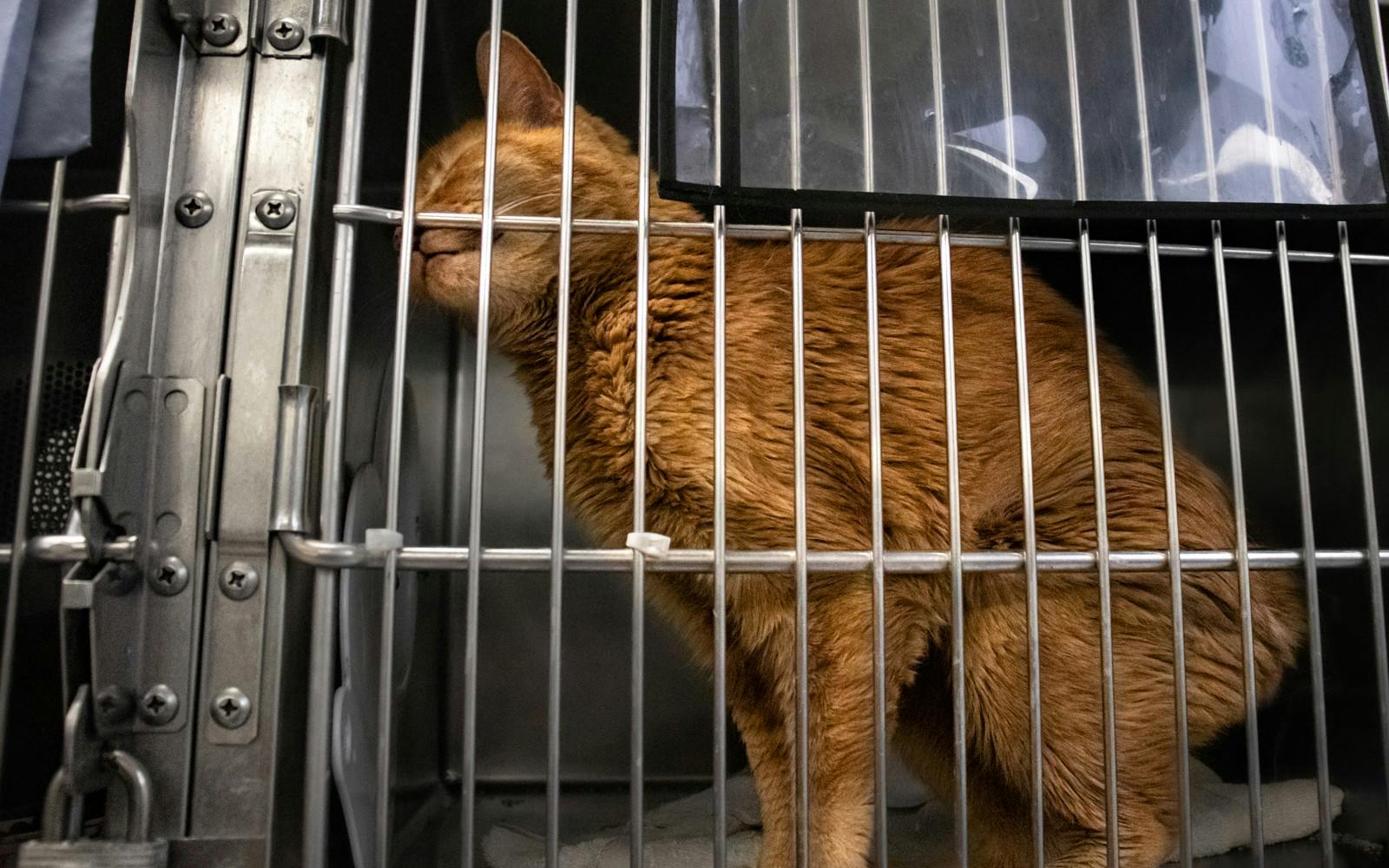The Animal Welfare Department is looking for people in Albuquerque who are willing to foster shelter animals.
The Animal Welfare Department is reaching out to the public because their typical foster resources have already been used due to the number of animals being surrendered, according to Valerie Greif, a foster team member.
A foster parent takes in different animals and provides them with care and a place to stay to make more vacancies in the shelter. The fostering process can look different based on animal needs, according to Tara Mansker, foster team member.
“The length (of fostering) kind of depends on how old the animal is, and the amount of care that that animal is going to receive,” Mansker said. “We have anything from newborn puppies and kittens all the way to a hospice foster, which is like an elderly pet who kind of just needs somewhere soft and safe to be for end-of-life care.”
The shelter is in need of support for adult dogs particularly – many of whom have been at the shelter for extended periods.
“One of the other needs is adult dog fostering,” Greif said. “We've got a really big number of adult dogs in care right now. There are a lot of them that have been at the shelter for quite a bit of time and they might need a couple of weeks out (of the shelter), just to get a break.”
There are also other opportunities to help for those who cannot foster animals, Mansker said. Anyone over the age of 18 can volunteer at the shelter, including bottle-feeding puppies and kittens, walking dogs and socializing the animals to acclimate them to people. The shelter also accepts donations.
“(We want) to help these guys make it through their time here since they are social creatures, and they're separated from people and other animals while they're here,” Mansker said. “And some of their stays are quite long.”
The center is also looking for donations of enrichment supplies, like toys that they don’t always get supplied to them, Mansker said.
“We always need toys for the animals, or milk replacements for puppies and kittens. Sometimes our distributors don't always have what we need, so we kind of rely on donations from the public,” Mansker said.
In the past few years, more and more animals have been surrendered to the shelter. Mansker said this may be related to the halt of public spay/neuter programs during the height of the pandemic.
Get content from The Daily Lobo delivered to your inbox
“We had that whole period where we couldn't do any elective surgery at all. I think that is now starting to catch up because all of those animals that were born during that time are now of the age where they can make more animals, and we're seeing the repercussions of that through the community,” Mansker said.
The top priority, Greif said, for the foster program is underweight and underage kittens.
“Kittens have to be a certain weight before we can spay and neuter them, and then they can be available to the public for adoption. So depending on how small they are, it can be anywhere from 2-3 weeks to over a month in foster care,” Greif said.
The shelter will supply training and resources to all interested.
“We will help you to help us. We will provide resources and training if necessary, and we are here to answer questions and support,” Greif said.
Detroit Kallunki is a senior reporter with the Daily Lobo. They can be reached at culture@dailylobo.com or on Twitter @DailyLobo.
Detroit Kallunki is a senior reporter with the Daily Lobo.


